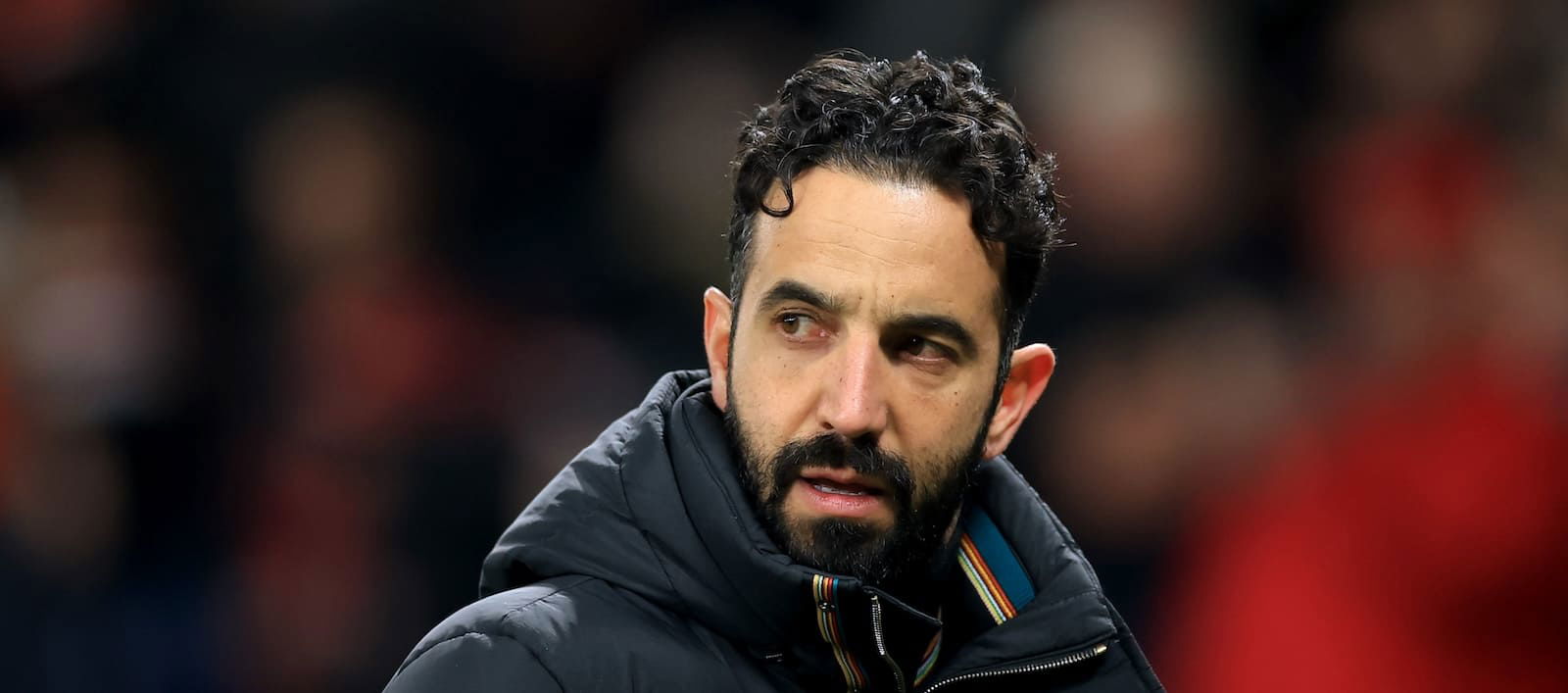The end of a troubled takeover bid
President Biden is set to officially block Nippon Steel’s $14 billion takeover of U.S. Steel as soon as Friday, most likely putting an end to an industrial megadeal that ran up against widespread political opposition.
But the decision could set off a cascade of consequences, including whether it would dissuade foreign investment in key industries, even from crucial U.S. allies like Japan. There’s one near-certainty: Expect a lot of litigation.
The deal’s demise seemed increasingly inevitable. In March, Biden said it was “vital” that U.S. Steel remained American-owned. The United Steelworkers’ union opposed the transaction from the start, questioning Nippon Steel’s commitment to maintaining the American company’s production and unionized employment levels. (That U.S. Steel is headquartered in Pennsylvania, a crucial election battleground state, escaped no one’s notice.)
Last month, the federal government panel, known as CFIUS, that reviewed the deal on national security grounds expressed concern that the Japanese suitor’s global business considerations could eventually outweigh any commitments it made to preserve U.S. Steel production levels.
President-elect Donald Trump also pledged to block the takeover once he took office.
Others have worried that blocking the deal could chill foreign investment. In recent days, some senior Biden advisers warned that rejecting the transaction could damage relations with Japan, The Washington Post reported.
Japanese officials pressed Biden to approve the deal. Rejecting it “will send a stark message that investment from Japan, regardless of lack of security concerns, is not welcome in the U.S.,” Takehiko Matsuo, a senior trade minister, wrote to Biden administration officials last month.
The matter will probably head to court. Nippon Steel has complained of the White House’s “impermissible influence” in the CFIUS process. That lays the groundwork for the Japanese company or U.S. Steel to sue over Biden’s expected move.
DealBook also wonders whether the companies would sue each other, perhaps citing a failure to do enough to win approval. (The deal agreement requires Nippon Steel to pay its American counterpart $565 million if regulators block the transaction.)
What next for U.S. Steel? The company’s C.E.O., David Burritt, has warned that the steel maker needs investment to upgrade its aging plants. Even CFIUS acknowledged that the company had a “history of inadequate attempts to improve its competitiveness.”
One possibility is another bidder — such as Cleveland-Cliffs, which had been previously rebuffed by U.S. Steel and whose stock has been under pressure — could swoop in. But there’s bad blood between Burritt and his Cleveland-Cliffs counterpart, raising the question of whether U.S. Steel investors would need to heap on the pressure to get a deal done.
HERE’S WHAT’S HAPPENING
Mike Johnson faces a nail-biter vote on Friday for House speaker. Johnson has the backing of President-elect Donald Trump and Elon Musk, but is hampered by a razor-thin majority and a fractious House Republican conference. Corporate America will closely watch the vote’s outcome for what it says about the chamber’s ability to pass legislation once Trump takes office.
The authorities identify the driver of the Las Vegas Cybertruck explosion. The man was an Army master sergeant on leave from active duty, who killed himself immediately before the rented Tesla detonated outside a Trump hotel in Las Vegas on New Year’s Day. The F.B.I. said it had found no link between the incident and the deadly New Orleans rampage hours earlier involving an Army veteran.
China places trade restrictions on dozens of U.S. companies. The Ministry of Commerce announced on Thursday that export-control limits would be put on 28 companies, including Boeing and Lockheed Martin. The move comes just weeks before Trump takes office, and will probably escalate a trade war between Washington and Beijing. More shots could be fired soon: The Biden administration is weighing a ban on Chinese-made drones.
Does Tesla sales stall matter?
At any other car company, the sales numbers announced by Tesla on Thursday would have been a catastrophe. Deliveries for the year fell slightly in a growing market, the first annual decline in the company’s history.
Yet the reaction on Wall Street was relatively muted when compared to the huge rally in Tesla’s share price in recent months, The Times’s Jack Ewing writes for DealBook. That reflects how much Elon Musk has sold investors on the idea that the cars are a piece of a much bigger vision that includes self-driving taxis and humanoid robots — and his close ties to President-elect Donald Trump.
Shares closed down but the stock is up more than 55 percent since Election Day. Musk’s relationship with Trump has given him a direct line to the White House that he can use to promote his business interests.
“Investors have shifted,” Erik Gordon, a professor at the Ross School of Business at the University of Michigan, told DealBook. “They thought of it as an E.V. company. Now they think of it as a technology platform. ‘What will Elon think of next?’”
Musk has revealed little detail about his plans. During conference calls with investors and analysts, he has focused on what he says will be trillions of dollars in revenue from self-driving taxis that are probably years away from mass production.
Yet Musk may find it difficult to realize his grand visions if the company keeps losing market share to rivals such as General Motors, BMW and BYD. (The Chinese car maker reported record sales in 2024.)
Does Musk need to accelerate plans for a lower-cost Tesla? He told investors in October that the company would begin selling a car this year that would cost substantially less than a Model 3 sedan, which starts at $42,500 before state and federal incentives.
But Musk has sounded ambivalent about the new vehicle, calling it “pointless” unless it’s capable of driving autonomously. And Tesla has not displayed a prototype yet.
That has led to speculation that Musk is not that interested in mass-market cars anymore. “What excites Musk is the technology for the day after tomorrow,” Gordon said. “An econobox E.V. just doesn’t ring his bell.”
One thing to watch in 2025: Musk’s reaction if car sales remain tepid and Tesla shares fall further. Would that prompt him to deploy more of the skills he used to build Tesla into the world’s largest maker of electric cars?
A blow to net neutrality
A federal appeals court has knocked down one of President Biden’s biggest tech policy accomplishments: the F.C.C.’s net neutrality rules on broadband internet providers that sought to safeguard consumers’ access to online content.
The dismantling comes as companies brace for the incoming Trump administration to usher in a new era of deregulation, and further limit regulatory reach.
The decision is a win for cable and telecom companies such as AT&T and Comcast, ending a two-decade effort to regulate them like utilities. It also shows the impact of a recent Supreme Court ruling that is expected to limit federal agencies’ power.
A recap: The regulations, which have been championed by Google, Facebook and Netflix, were put in place under the Obama administration amid concern that internet service providers could become de facto gatekeepers with the power to slow or block access to content. The rules were revoked during the first Trump term, only to be reinstated by the F.C.C. in April.
Brendan Carr, President-elect Donald Trump’s pick to lead the F.C.C., has been a vocal critic of the rules.
The ruling could draw legal challenges. It relies on the Supreme Court’s upending last year of the Chevron doctrine requiring courts to defer to federal agencies’ interpretation of ambiguous statutes. “The F.C.C.,” Judge Richard Allen Griffin wrote, “lacks the statutory authority to impose its desired net-neutrality policies.”
Tim Wu, a former Biden administration official who coined the term “net neutrality,” slammed the decision, calling it “blatant judicial activism that puts corporate interests over American democracy.”
What’s next? The fight over net neutrality isn’t over: The decision doesn’t affect state laws, including those in California, Washington and Colorado. And Democrats at the F.C.C. called on Congress to enshrine net neutrality into law. Still, many commentators note that net neutrality isn’t the hot-button consumer issue it had once been.
“The market no longer thinks it’s a big deal and hasn’t for a while,” Blair Levin, a former chief of staff to the F.C.C., told The Times.
A big reshuffle at Meta
In the latest sign of how Big Tech is repositioning itself for the new Trump administration, Meta has tapped a prominent Republican to head its global policy team.
Joel Kaplan, a longtime Meta employee and a deputy chief of staff under former President George W. Bush, will take over from Nick Clegg, as first reported by Semafor.
Meta has tried to take itself out of the political spotlight. Clegg, a former deputy prime minister of Britain, joined the tech giant when the company was facing fierce blowback, including for its handling of disinformation on its platform during the 2016 election.
He’s credited with smoothing relations with regulators, especially in Washington and Brussels.
Could his leftish politics have become a liability? Clegg may have been planning his exit before the election, but he didn’t hide his opinions. Last month, he warned that Elon Musk, whose X and xAI compete with Meta, could become a “political puppet master” and criticized Musk’s stewardship of X.
The remarks came as many businesses worry about retribution from President-elect Donald Trump and Musk — and as Big Tech C.E.O.s have gone out of their way to curry favor with them.
Kaplan’s deep Republican roots could help Meta in the new Trump era. He joined Facebook in 2011, and later served as Clegg’s deputy. Before that, he clerked for Justice Antonin Scalia on the Supreme Court and is a close friend of Justice Brett Kavanaugh. (He appeared at Kavanaugh’s contentious confirmation hearings, and later apologized to Meta employees who thought his presence showed a political preference).
He has also been one of the loudest voices inside Meta pushing against restrictions on political content.
Mark Zuckerberg has largely turned away from politics. For years, the tech mogul publicly campaigned for liberal causes but has shifted after coming under sustained fire. Trump criticized Zuckerberg and threatened to put him in jail after accusing Meta of censoring conservative views.
But Zuckerberg, like other Big Tech leaders, has made efforts to court Trump, having traveled to Mar-a-Lago to meet the president-elect after the November election.
THE SPEED READ
Deals
-
Several prominent hedge funds — including Millennium, D.E. Shaw, Bridgewater Associates and Ken Griffin’s Citadel — reported double-digit returns last year. (Reuters)
-
Hindenburg Research, the activist short-seller, announced a bet against Carvana, accusing the used-car sales platform of accounting manipulation. (CNBC)
Politics and policy
-
President-elect Donald Trump picked Ken Kies, a longtime tax lobbyist for clients including Microsoft, as the Treasury Department’s assistant secretary for tax policy. (Bloomberg)
-
“How Silicon Valley won a powerful House committee” (Politico)
Best of the rest
-
The U.S. surgeon general, Vivek Murthy, called for cancer warnings to be placed on alcoholic beverages; doing so would require Congress to act, however. (NYT)
-
Richard Easterlin, an economist whose work challenged the assumption that more money always leads to more happiness, died Dec. 16. He was 98. (NYT)
-
“The Rise Of Big Potato” (The Lever)
We’d like your feedback! Please email thoughts and suggestions to dealbook@nytimes.com.













